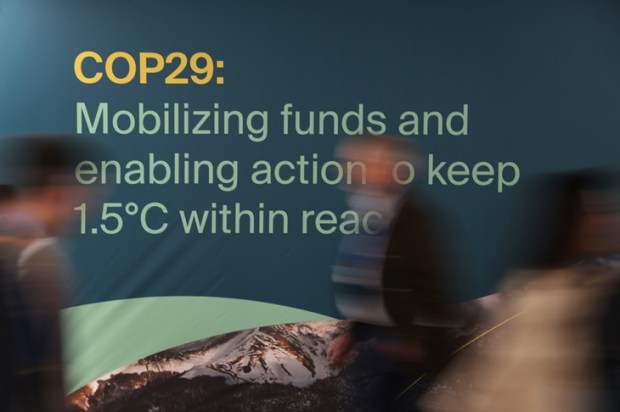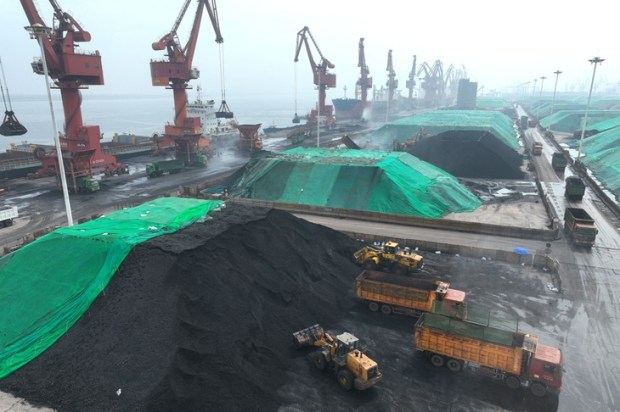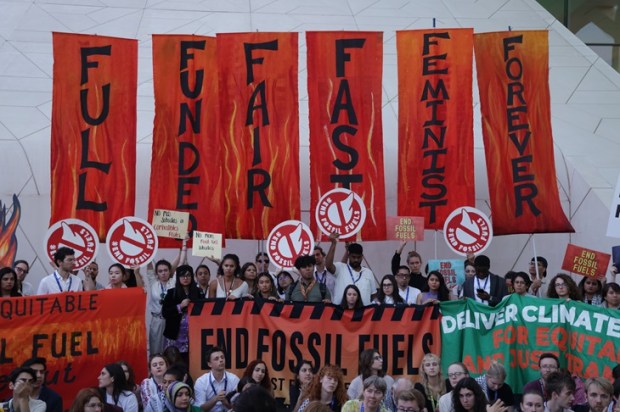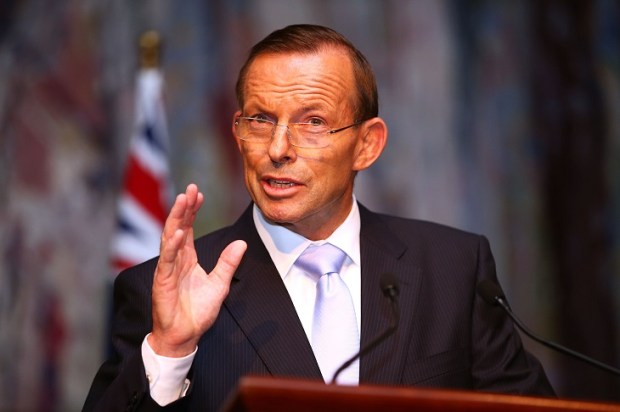How did we arrive at the position where, throughout the Western world, political decisions to undermine the cheapest and most reliable energy sources are bringing about economic stagnation and possibly collapse?
Notwithstanding evidence of this, why are policy settings intensifying the very measures that have created the breakdown?
Europe is seeing record energy prices and the America’s renewable subsidy-oriented Inflation Reduction Act portends a following of suit.
For Australia, similar measures are intensified by law courts deciding that individual Indigenous voices, now extending to a need to protect ‘sea country’, can veto new gas and coal projects. The government wishes to strengthen these voices, which add to the damage of Mr Albanese’s ominous declaration that he ‘has a plan’ to combat climate change.
The vast majority of politicians have always seen themselves as improving on what they perceive to be the chaos of the market system. They would override the ‘dog-eat-dog’ market decisions on the best technologies, the location of facilities, the creation of skills, and the allocation of capital investment from a seductive ‘holistic’ perspective. Many also would argue that their own allocatory decisions would make savings by dispensing with so-called inessentials like advertising and the revenues siphoned off in profit.
Disappointing outcomes from previous failures of such policies fail to dampen the enthusiasm of the next generation who chalk off those failures as being due to poor management, which they will avoid.
Moreover, politicians are, with very few exceptions, simply the readers of political research and retailers of the voter preferences which that research reveals. In the main, they subscribe to the philosophy, ‘I got into this business because I wanted to make a difference’, as expressed in the words of a minister in the BBC series The Thick of It. The problem is that politicians most readily make a difference by awarding favours, righting wrongs, and addressing inequalities by drawing from funding they do not have. In doing so, they actually make things worse, not least because in raising funds and introducing regulations they create deterrents to invest and innovate, while at the same time imposing dead-weight public service paper-burden costs.
Convictions that the present system of production and consumption is causing damaging climate change are superimposed on this tapestry. Irrespective of the impossibilities of coordinating the whole world to agree to a carbon constraint, the trivial effect of higher emissions on the climate and its measures’ adverse productivity imposts, this offers a powerful amalgam that combines supposed environmental externalities with the putative nectar of socialism.
As the strong political consensus in favour of market interventions to promote ‘clean energy’ demonstrates, most political activists who nominally reject socialism are not immune from those forces.
Boris Johnson was lionised as a champion of small government conservative voices, but in power showed himself to be a market interventionist uxoriously besotted by the fashionable Climate Change agenda.
Australia is no stranger to such apostasy.
David Kemp has been seen as an important contributor to libertarian free market thinking. But, as John Howard’s Environment Minister, his policies included coordinating with Labor state governments to expropriate thousands of landowners’ properties so they could be converted into non-productive ‘carbon sinks’ in order to meet the government’s Kyoto emission reduction goals. More recently, the Morrison Liberal government pandered to the environmental Woke by, for example, rejecting impartial advice to cease subsidising rooftop solar panels and in preventing gas exploration off the New South Wales coast.
The politicians who have successfully rolled back this socialistic interventionism are an exceedingly rare breed. None may be presently in power anywhere in the world.
In the past, we have seen giants like Thatcher, Reagan, Trump, Deng Xiaoping, and the architect of Germany’s economic miracle Ludwig Erhard create economic resurgences from the ashes of economies in seeming terminal decline. In all cases, the approach was to eliminate regulations and reduce spending. The closest we got to that in Australia was the early administration of Malcolm Fraser (with considerable help from a John Stone led Treasury) in reversing the statist politics of Gough Whitlam, and the doomed efforts of Tony Abbott who unfortunately presided over a parliamentary party so inept that they replaced him with Malcolm Turnbull, the epitome of green socialism.
It may be that disastrously high energy cost outcomes of the current policies will bring about a correction in Australia and elsewhere, but there is nothing pre-ordained about such a retreat from the precipice.
Argentina offers a dismal precedent. Over the course of a century, the nation went from one of the richest to one of the poorest nations in the world.
The people elected governments some of which were nominally of the left and some nominally of the right. In all cases, the governments introduced regulatory restraints, spent money that they did not have, or raised funds with punitive taxes on the inevitably declining number of ‘haves’ to provide additional favours to their supporters. The upshot of lower living standards has, however, not resulted in a revolt against the policies causing that outcome. Rather, we see popular demonstrations demanding even more of the same policies.
It was Albert Einstein who said, ‘The true definition of madness is repeating the same action, over and over, hoping for a different result.’ Hopefully, sanity will be restored.

























